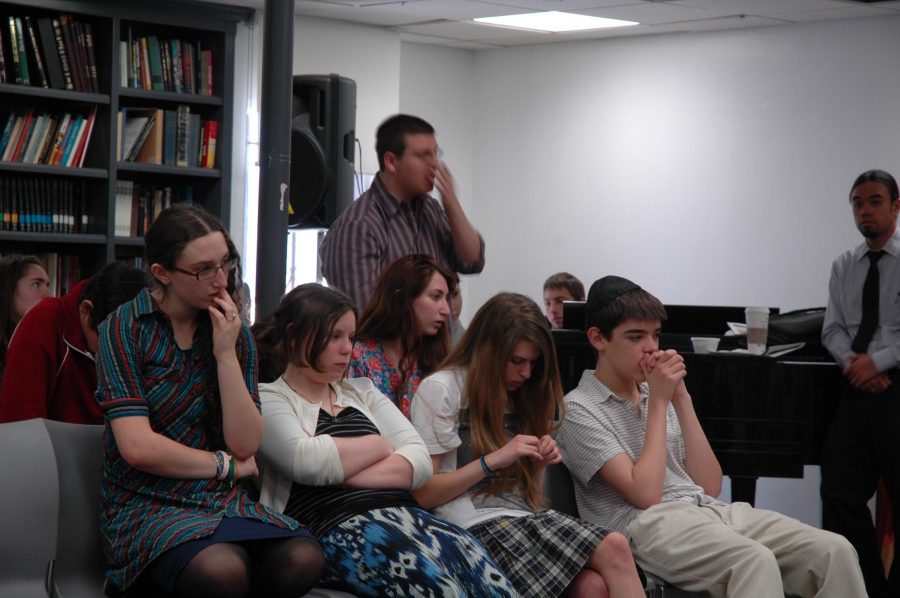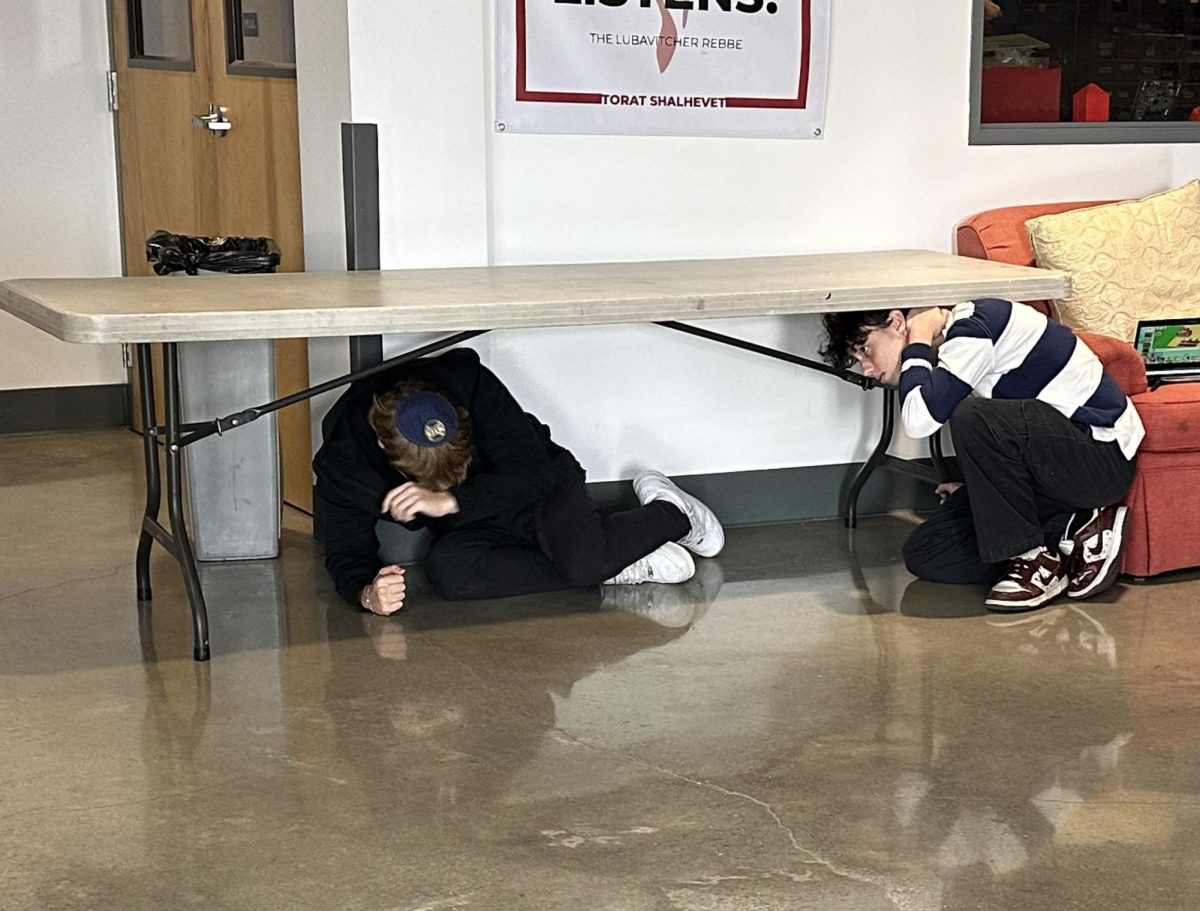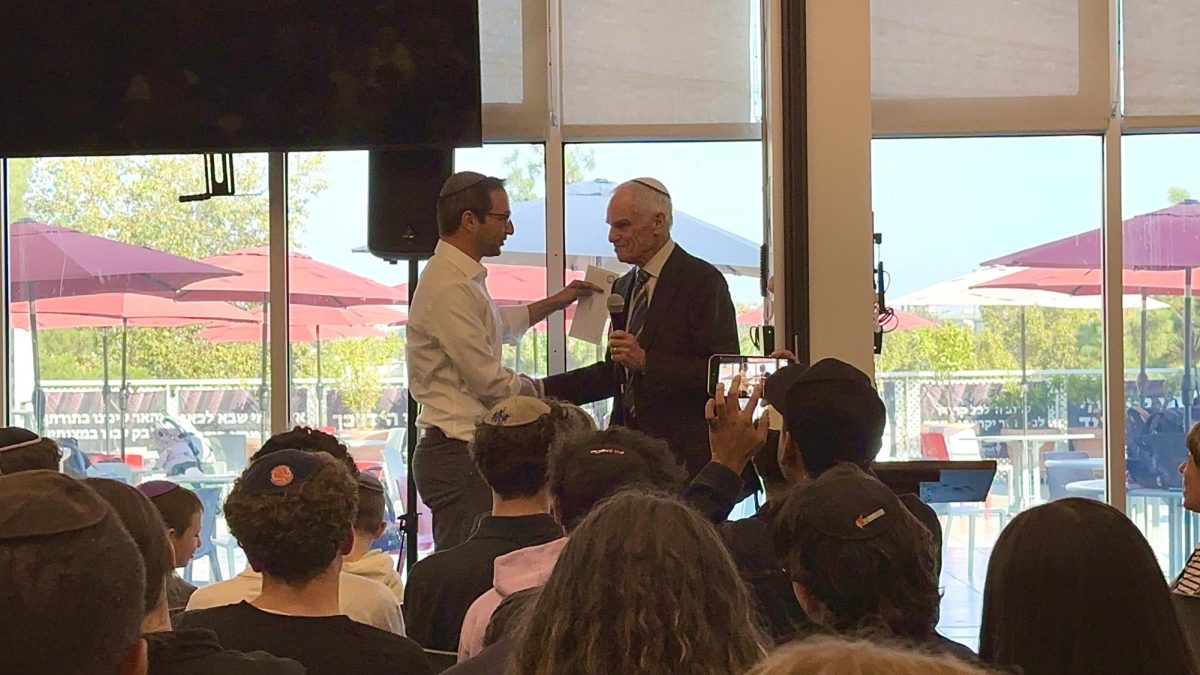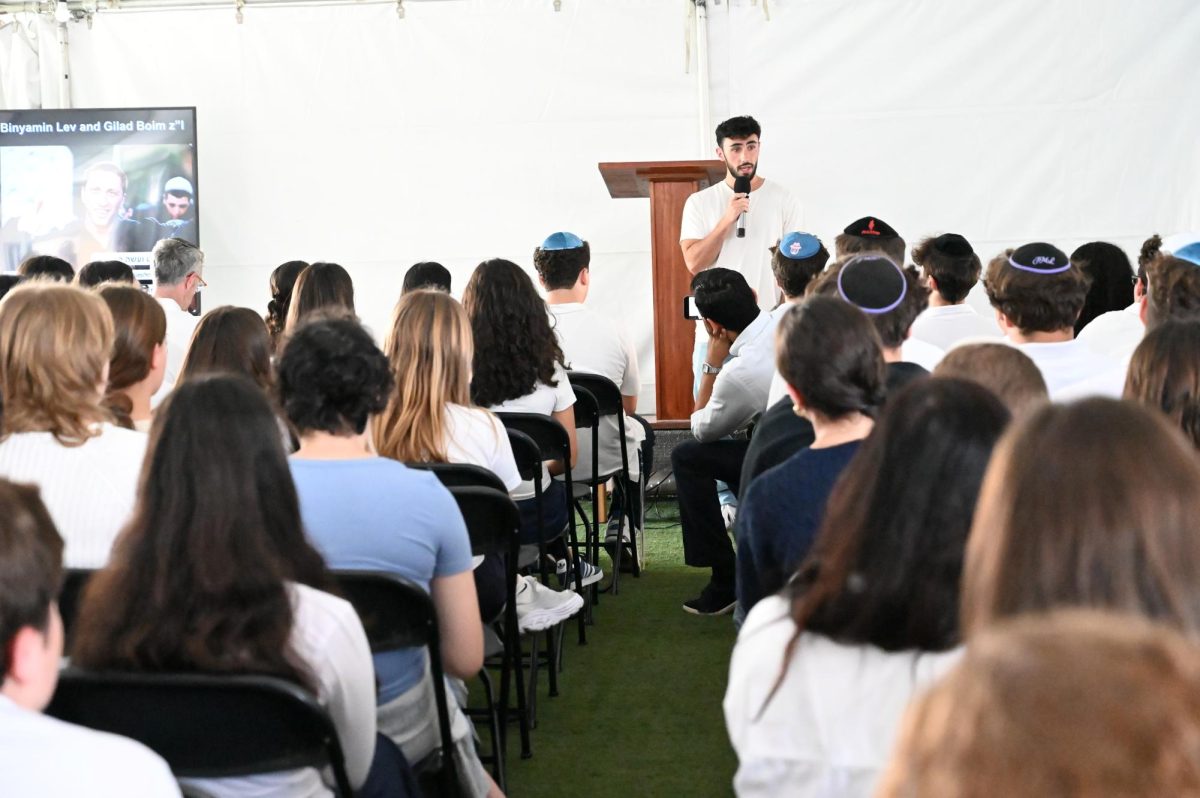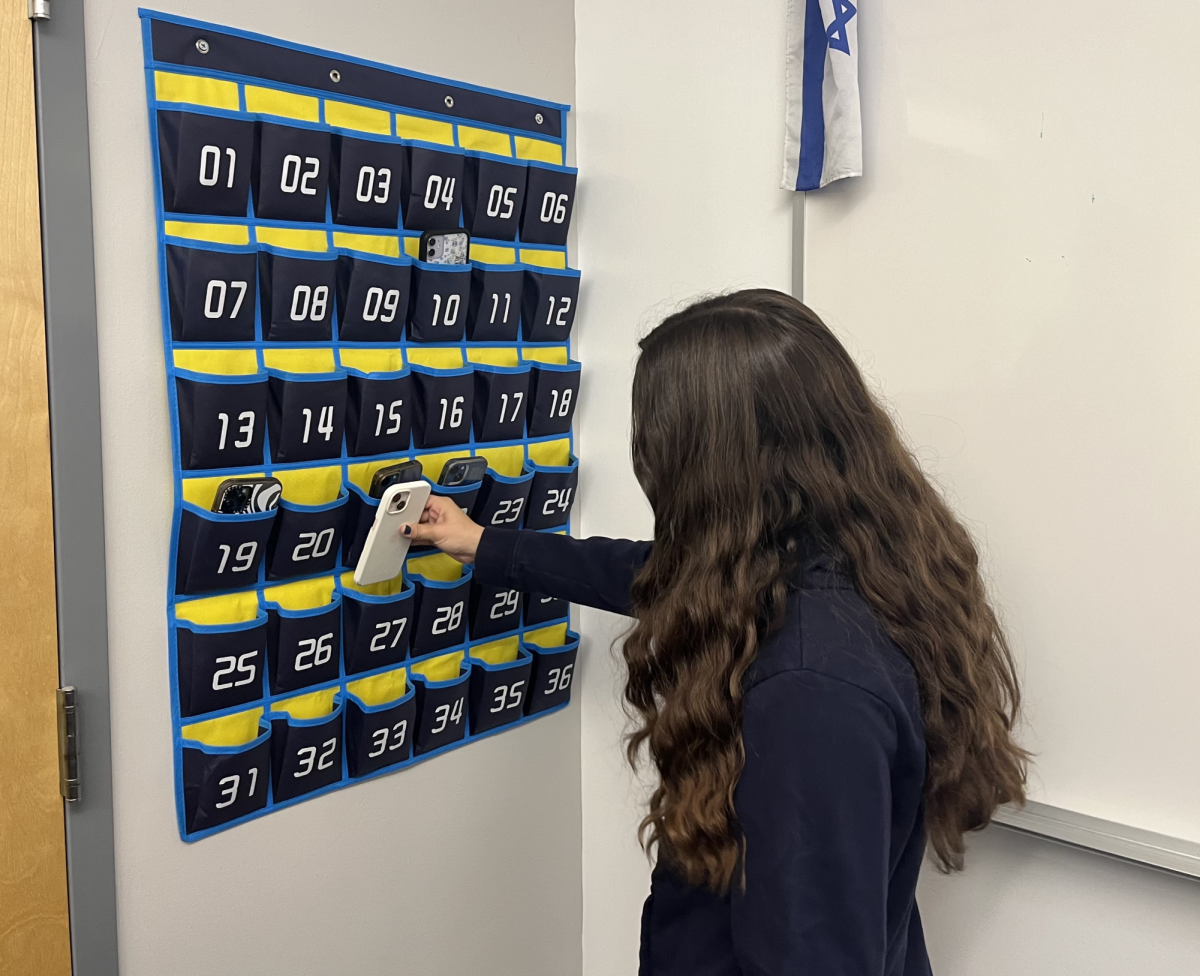High school is thriving and was subsidizing lower schools, outside analyst says, and board agrees in unanimous vote.
Shalhevet announced March 17 that it would close its middle, elementary, and preschools next fall, after financial analysts reported to the Board of Educators that these branches were draining resources from the high school, which remains strong.
Only the high school, which opened in 1991, will continue, and the eighth grade will run for one more year, to accommodate the “unique needs of the eighth graders,” according to the press release on the Shalhevet website. Over 30 teachers and 115 students will leave the school.
“There’s a lot of pain and fear in the building right now,” said Head of School Rabbi Weinbach in an assembly during first period on Thursday. “This incredibly difficult decision makes me shake for the Day of Judgment, and I really meant that.” The mood for the day following the announcement was somber, tense and emotional.
The announcement followed a unanimous vote of Shalhevet’s board the previous day. The Board’s Finance Committee had spent a year crunching numbers by themselves before bringing in a third-party analyst from the Partnership for Excellence in Jewish Education to assess the data. The entire process took two years.
“The first piece of information that we learned was that the high school was not only flourishing, but that we’d never felt better about the future of the school,” said Larry Gill, a member of Shalhevet’s Finance Committee in an address to high school students during second period on March 18.
“But our next finding was shocking: neither the ECC, nor the elementary, nor the middle school was financially sustainable,” Mr. Gill said. “Essentially, the money from the high school was funding the losses of the other schools, and it simply couldn’t keep going that way. If the school were to continue as it currently functions, we would be looking at something like a $1.25 million deficit.”
The reasons for this are varied, he continued.
“There are several Jewish middle and elementary school options out there, which contributed to our shrinking demographic pool,” explained Gill, “while there is no high school option even close to what Shalhevet High School offers.”
“Also, Jewish schools generally provide more financial aid than other schools,” he said. “This is something we should be proud of, and I wish we could keep going this way, but it’s simply not fiscally responsible. A lot of schools just keep going down this path, and then the entire institution needs to shut down. We couldn’t risk losing all of what we’d worked so hard to build.”
Additionally, there was a 70 percent increase in the rent on the campus on which the ECC was located, said Gill. The ECC opened at the start of this year, and its director, Wendy Kellner, could not have been more surprised at the news.
“We are at maximum capacity for this year — 35 students — with a waiting list,” Mrs. Kellner said. “We were in the process of increasing our capacity to 48 students for next year… I believe we would have been at capacity again, had we had the chance to continue.
“I am incredibly proud of what we accomplished in our first year – a high-quality program, outstanding teachers, and lovely families.”
This decision will mean the end of Shalhevet’s claim to be “the only Modern Orthodox K-12 day school in Los Angeles.” It will also mean the end of a seven-year period of expansion, which began with the opening of the middle school in 2003.
“We opened the middle and elementary schools for two reasons,” said Dr. Jerry Friedman, President Emeritus and founder of Shalhevet. “First, to show that younger children could also thrive and become mensches under the Kohlbergian methodology, and second, because we were having some difficulty getting students to come to Shalhevet High School, we felt a feeder school could address that problem and demonstrate the importance of the type of education we were offering.”
Dr. Friedman was informed of the decision the same day that the students, parents, and faculty heard.
“I was shocked,” said Dr. Friedman. “I look at Shalhevet as more than school, more than a community, but a family. This feels like casting off a child.”
He said he was still hoping for “a miracle” to keep the schools open [see story page 4].
The administration first announced the decision on March 18 in a series of meetings with Shalhevet faculty, and then via email to Shalhevet parents, but the formal announcement to the students came the next day. The news significantly altered the schedule and tone of the day.
In addition to assemblies during first and second period, Town Hall was cancelled, and instead became a free period. Many students used that time to seek out their middle and elementary school friends and siblings. Some students were crying and sulking, others yelling, and still others reflecting quietly.
“The majority of my family is affected,” said Katie Feld, a freshman who started Shalhevet in sixth grade. “My mom worked there [as a first and second grade teacher] and my two brothers went there, so now I have two school-less brothers and a job-less mom.”
The decision will split the family, as Katie and her father, Jewish History teacher Jason Feld, still plan to stay at Shalhevet.
“It’s true that most high school students aren’t being affected, but the majority of my family is,” she expanded. “Finding a new school is the topic of conversation around my house. I don’t want to say anything about the decision of the board because I don’t know enough; I trust they did what they had to do, but I do believe that timing was inconvenient.”
But the decision had an effect even on those who were not directly impacted.
“I was reading the news yesterday and I saw that 50 schools in Detroit closed and I was just like, ‘Oh, okay, next headline,’” said senior Zach Miller, who attended Maimonides Academy. “Today, one school is closing, and I understand. At Shalhevet, we’re part of close-knit community, and this decision involves everyone.”
The decision elicited a strong and swift reaction among Shalhevet’s numerous Facebook users. Many students changed their profile pictures to the Shalhevet flame, and students promptly wrote statuses that reflected their sentiments.
“Shalhevet middle school teachers=myfamily,” wrote junior Audrey Pfeiffer, who started Shalhevet in seventh grade, the day the news broke.
Students also mobilized to create new Facebook groups, such as “HELP KEEP SHALHEVET!!” and “i will always remember shalhevet middle skool,” both of which have over 80 members.
“This news is hitting all of us hard,” wrote middle school History teacher Mrs. Ilana Zadok on the wall for the “i will always remember shalhevet middle skool” group. “I hope that tomorrow we can come together as our Shalhevet family to talk this out and share our feelings. Your teachers are going to miss all of you so much. Thank G-d for Facebook to keep us all connected.”
Throughout his address to the students, Mr. Gill impressed upon the students and faculty the desperation, necessity, and difficulty of the Board’s decision.
“This is not an overnight decision,” he said. “We try to be as objective, unemotional, and unbiased as we can when making financial analyses, but it really wasn’t like that. We went into this thinking, ‘how can we save the whole school?’
And unfortunately, in the end, we simply couldn’t.”

